The Commons library: 200 years of history
- Published
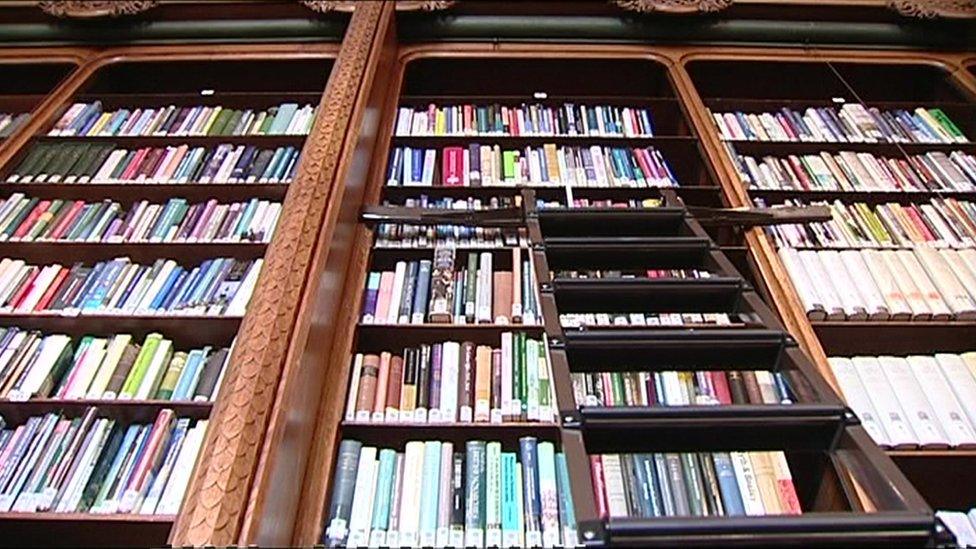
The House of Commons library has played a quiet part in 200 years of British political history.
Unknown to many outside Westminster, it shapes important decisions by giving MPs impartial briefings on the issues of the day - from education to Brexit.
Home to hundreds of thousands of documents, the library is opening up as it celebrates its bicentennial.
Penny Young, the Commons librarian, spoke to BBC News about the library's unique role.

A place of history
The library has experienced a somewhat inauspicious sequence of events. Founded in 1818 to house the Commons journal, it soon outgrew its original rooms and moved to bigger premises 10 years later.
But this only lasted another six years before the famous fire that destroyed much of the Palace of Westminster in 1834. Thanks to some quick-thinking staff, some original Elizabethan-age petitions and records were saved by being thrown from the window, but much of the library's original collection was lost to the ages.
But the devastation did create "an opportunity to rethink the library," Ms Young says, and it moved into its current "magnificent" home in 1852.
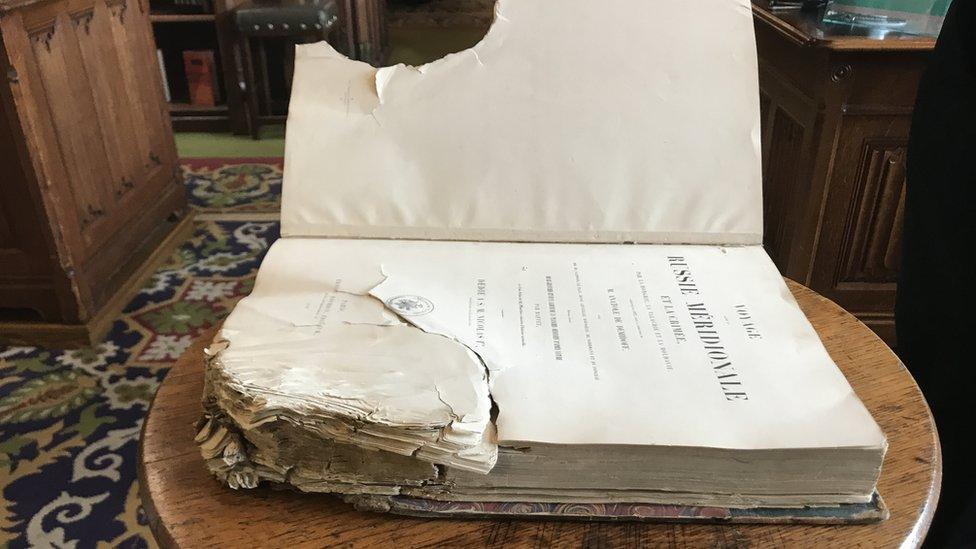
A book bears the scars of the anti-aircraft missile
Disaster nearly struck again almost a century later when, during the war, an anti-aircraft missile came through a window and "smashed through the floor".
The library survived relatively unscathed - although you can still see a book scorched by the bomb - whereas the House chamber "did not get off so lightly during the war".
Ms Young stresses that, despite these dramas, perhaps the seminal moment in the library's history was its change from a reference to a research library in 1946.
This is when it acquired its modern function, eventually hiring expert researchers to produce thousands of briefings for MPs.

Dedicated staff
Despite being a "sometimes frustrating place," Penny Young says it is these staff and their expertise which make the library a brilliant place to work.
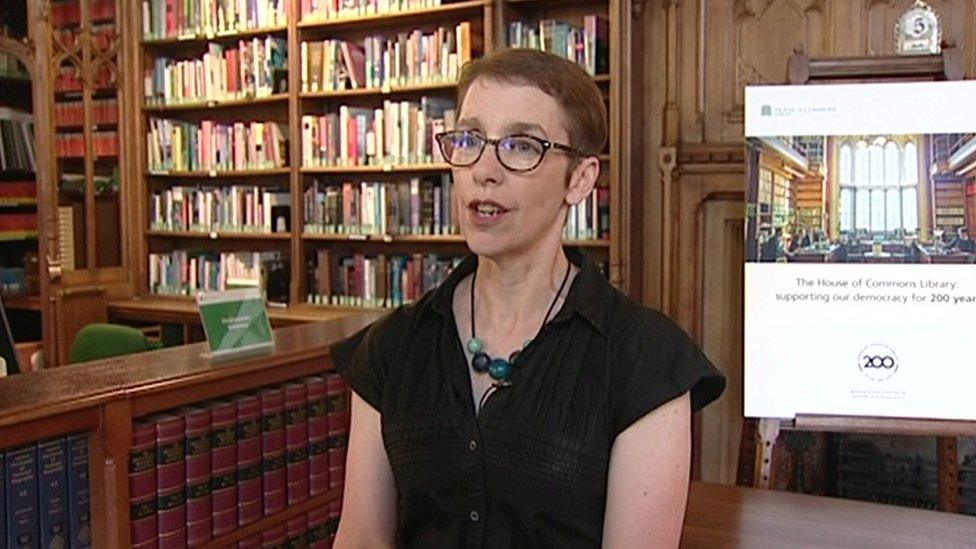
Penny Young says working in the Commons library is a "privilege".
"They are fantastically fast and they know an awful lot," she says. "My favourite thing about the library is being constantly amazed at what they produce."
They are dedicated public servants, she says, and pride themselves on fulfilling their duty to be impartial. "We tell it like it is," she adds, and the library enjoys high levels of trust and respect from MPs, despite sometimes publishing "uncomfortable" findings.
There are 900 pieces of research published a year, both long investigations and quick briefs on topics of the day.

Brexit, Brexit - and health
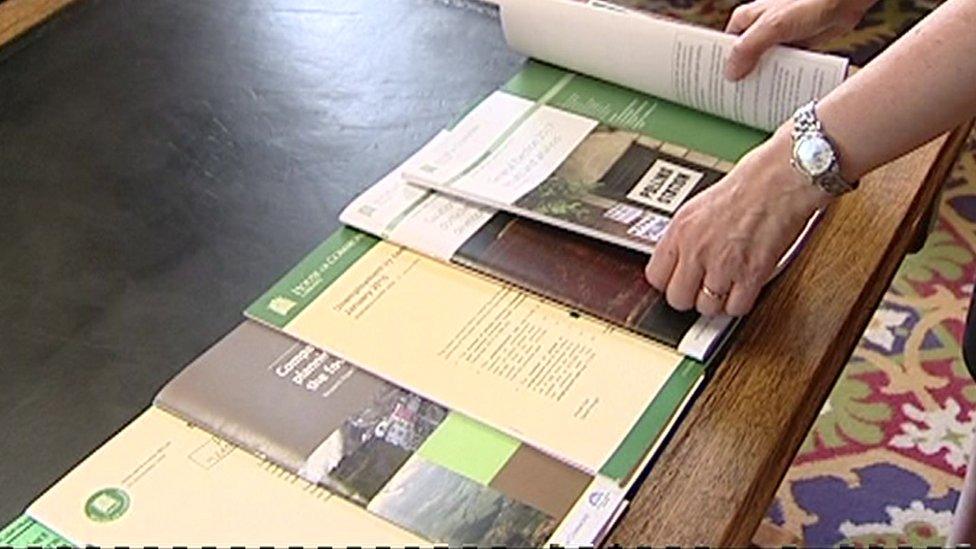
Briefings through the ages
The subjects the library briefs on naturally change with the times. "If there's something really contentious going through Parliament, that will create a lot of demand," Ms Young says, so obviously Brexit has dominated for the past few years.
But some things stay the same. MPs are always most concerned with the issues which their constituents bring to them at their weekly surgeries.
"People talk of MPs as the social worker of last resort, when people have nowhere to go," Ms Young says, and so they make lots of enquiries about immigration, housing, schooling and health.
"The issues that really matter to citizens," as Ms Young describes them.

Celebrations
While the public can visit and engage with Westminster in a variety of ways, they almost never see the library, says Ms Young.
Despite its critical role in political life, it is normally a private space. But as it celebrates its anniversary, Ms Young and her staff are opening the library up to the public.
There has already been a fully-booked set of tours, with another due in later in the year. Ms Young encourages the public to follow the library on Twitter, external to see when tickets become available.
Getting the public in is important, Ms Young says, because they pay for the library's work. So she is also celebrating online,
"We've created a film about what the library does , externaland its history," she says, as well as a piece full of the personal stories of staff throughout the years, external.
"We know that Parliament doesn't have the best of reputations," she says, "so to be able to showcase a part of Parliament that is really trusted and has a real impact on what happens, I think will help the public understand what Parliament does - and believe in the institution even more, which would be great."
- Published6 July 2018
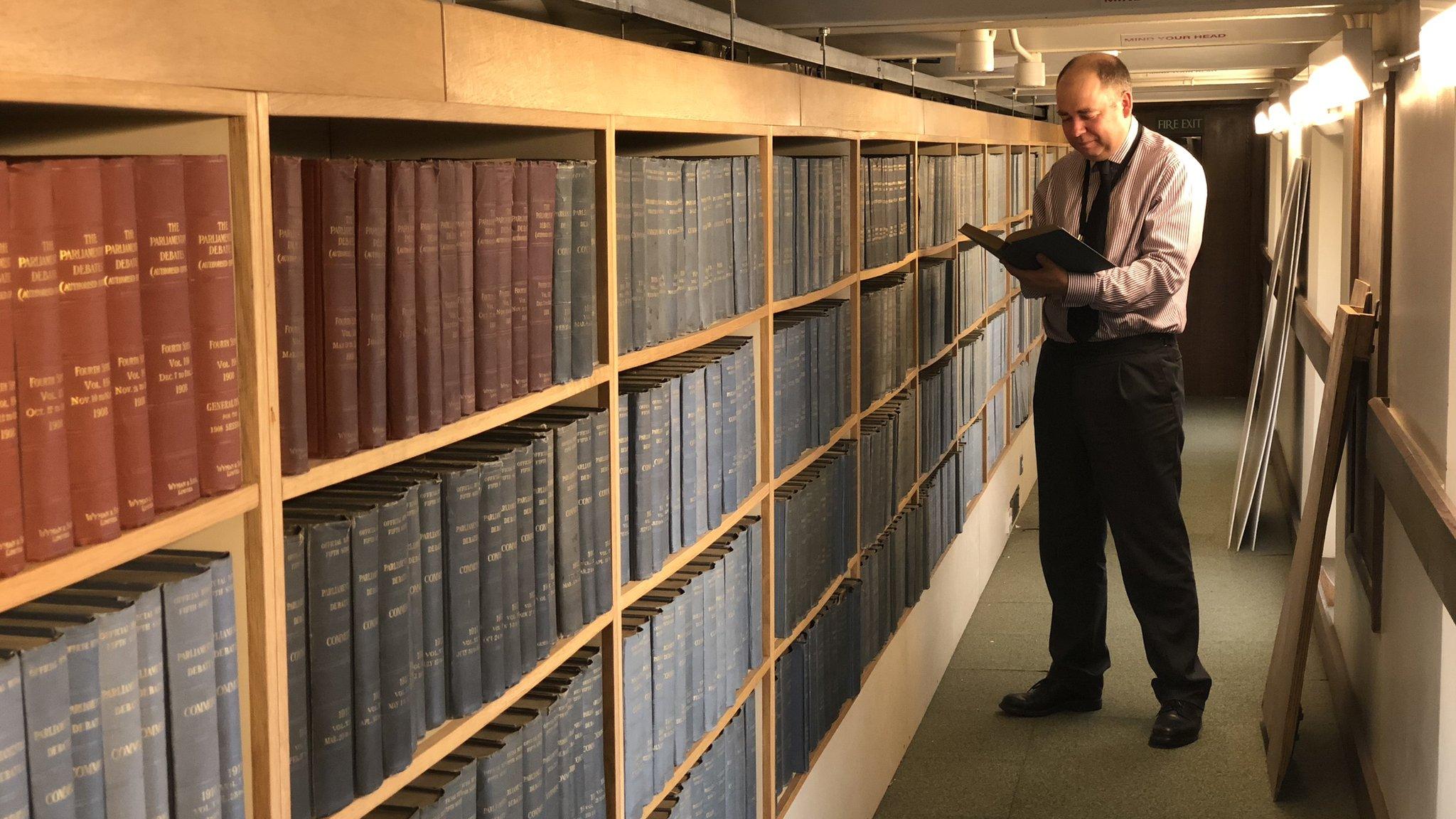
- Published6 July 2018